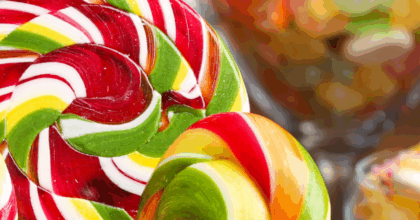Brits relax on snacks: Consumers cut down on snacking as less than a third (29%) now eat sweets between meals
It seems that Brits’ snacking habit is waning as consumers keep an eye on their waistlines. Indeed, new research from Mintel reveals UK consumers have cut down on consumption of all snacks over the past year.
Mintel research highlights that chocolate, which in 2014 was Britain’s most eaten snack tied with fresh fruit, has fallen as a snack choice by 9 percentage-points over the course of a year. Whilst over two thirds (68%) ate the snack in the month to December 2014, a year later in December 2015 just 59% said they ate the treat between meals. What’s more, in the same time frame, the number of Brits snacking on crisps and crisp-style snacks fell 10 percentage-points from 67% to 57%, the proportion snacking on sweets dropped 11 percentage-points from 40% to 29%, those snacking on cakes and sweet baked goods declined by 12 percentage-points from 51% to 39% and an 11 percentage-point drop in usage was seen in the pie, pastry and sausage roll segment with just 25% of consumers snacking on these products in the month to December 2015.
However, it’s not just ‘unhealthy’ treats which are seeing a drop in consumption. Whilst it’s still Britain’s favourite snack, the number of consumers eating fresh fruit outside of mealtimes dropped from 68% in December 2014 to 61% in the month to December 2015, and the proportion snacking on fresh vegetables dropped from 32% to 21%.
But it seems that by and large, Brits are far from snack-free. Overall, 95% Brits ate snacks in the month to December 2015, down by just 2 percentage-points in 2014 (97%).
95% Brits ate snacks in the month to December 2015
Amy Price, Senior Food and Drink Analyst at Mintel, said:
“Snacking in the UK is almost universal, however health considerations continue to play a significant role in the market. Health remains an ongoing issue for consumers, with calorie and sugar content of high relevance and as swathes of the population try to address this, it appears to have had a knock-on effect on consumer snacking. Currently new product development is failing to cater to the demand for healthier products, suggesting scope for innovation in healthier variants to be used to appeal to health-conscious consumers.”
Indeed, with almost half (48%) of UK adults trying to eat healthily ‘most of the time’, today snacking is under threat. 70% of those who eat snacks say that cutting down on snacks is an easy way to reduce calorie intake.
Amongst snackers there is a strong demand for healthier snacks, with 70% of snackers agreeing that snack manufacturers should do more to reduce sugar in snacks. Additionally, over half (55%) of snack eaters say they would be interested in snacks sweetened with sugar alternatives, such as honey or agave syrup, and 54% would be interested in healthier versions of their favourite snacks, such as low-fat crisps.
And going forward, consumer demand for healthier options is the key attribute snackers will pay more for. Almost one quarter (22%) say they’d pay more for all-natural snacks, for instance snack products that contain no artificial colouring or flavouring, whilst 19% would pay more for a snack with a low calorie count and 18% would pay more for a snack with nutritional benefits, for example snacks high in fibre.
Despite strong consumer demand for healthier options, just 11% of snack products launched in the UK in 2015 had a low, no or reduced sugar claim, whilst 8% carried a low, no or reduced fat claim and just 4% carried a low, no or reduced calorie claim.
“New product development is currently failing to cater to this demand for healthier products, with low/no/reduced calorie, fat or sugar claims accounting for a small share of product launches in 2015. This suggests that exploring healthier formats in these areas could be a way to appeal to snackers without fear of backlash.” Amy comments.
Despite consumer desire for healthier options, it seems many are taking a balanced approach to snacking. Four in five (80%) snackers say that snacking is enjoyable and the frequency with which consumers graze is still high. Indeed, the majority (71%) of snackers in the UK snack once a day or more, with over one quarter (27%) snacking twice a day, and 7% snacking three times a day or more. Currently, younger consumers are the UK’s biggest snackers as nearly four in five (79%) of consumers aged 16-24 snack once a day or more, compared to 62% of snackers over the age of 55.
But it seems it’s hunger rather than greed which leads to hands in the snack draw. Over half (53%) of those who eat snacks say they snack to satisfy hunger between meals, while two in five (42%) say they do so to satisfy a craving. What’s more, comfort eating is still a habit for many as 23% of snackers say they snack to cheer themselves up and approaching one in five (18%) do so to de-stress or to relax.
For younger consumers in particular, it seems this group turn to snacks for a boost in their mood: 30% snackers aged 20-24 say they snack to cheer themselves up, whilst one third (33%) do so to overcome boredom. Additionally, younger people are more likely than their older cohorts to snack in order to replace a meal, with 19% of 20-24s doing so, compared to 10% of consumers overall.
“Our research shows that younger consumers are most likely to snack due, in part, to older consumers seeing a loss of appetite as they age, as well as a older generations having experienced more traditional upbringings where eating three square meals a day was the norm. Today, the busier lifestyles of younger consumers is eroding the rigidity of traditional mealtimes.” Amy concludes.
Press review copies of the Consumer Snacking UK 2016 report and interviews with Senior Food and Drink Analyst Amy Price are available on request from the press office.
-
Discover your next big breakthroughGet smart fast with our exclusive market research reports, delivering the latest data, innovation, trends and strategic recommendations....View Reports
-
2026 Global PredictionsOur Predictions go beyond traditional trend analysis. Download to get the predictive intelligence and strategic framework to shape the future of your industry in 2026 and beyond. ...Download now
-
Are you after more tailored solutions to help drive Consumer Demand, Market Expansion or Innovation Strategy?Ask for a customised strategic solution from Mintel Consulting today....Find out more































